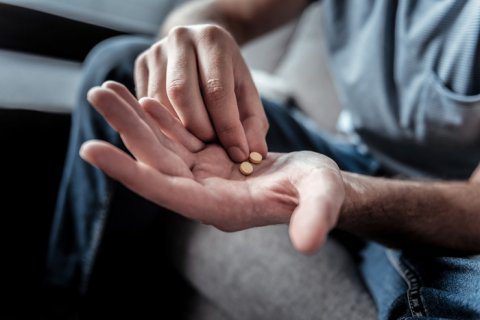Imagine These Scenarios
Imagine you have to take a big test tomorrow—maybe a test that will determine whether or not you can attend the college of your choice.
Imagine you have a job interview tomorrow—maybe an interview that will determine whether you will advance in your career or stay stuck where you are.
Imagine you have a doctor’s appointment tomorrow—maybe an appointment that will determine whether your current illness is something serious.

The odds are pretty good that in any of those situations—and in many more like them—you would feel some anxiety. You might even spend the night before tossing and turning due to the stress you are experiencing. After all, it is only natural to feel a little amped up before an important event in our lives. But once we get on the other side of the thing causing the worry (especially if things go well), the anxiety generally subsides and we feel more relaxed.
But what if that wasn’t the case?
Anxiety Disorders
What if you felt anxiety—or even panic—all of the time, whether you had a specific reason to feel that way or not? It is not too difficult to imagine how disruptive that would be. It would make it hard to succeed at work or school. It would make it difficult to enjoy social situations. It would make sleep elusive (which would lead to a series of additional issues over time).
In that situation, it would be natural to seek out a way to escape the anxiety. And for the many individuals who struggle with anxiety or panic disorders, that way comes in the form of a class of medications known as benzodiazepines (often called “benzos” for short).
Benzos can throw a lifeline to a person drowning in anxiety. But if they are misused, these drugs can also lead to big problems.
Putting the Brakes on the Racing Mind
So how do benzos work? All of the drugs in this category—including but not limited to Ativan, Klonopin, Librium, Valium, and Xanax—are central nervous system depressants. That means they literally reduce the amount of activity in your brain. If anxiety can be thought of as a racing mind, a benzo can be thought of as the brake pedal.
The feeling of relief can be life changing. But that feeling of euphoria can quickly take a turn if it tempts a person to misuse a benzo.
Too Much of a Good Thing
It is easy to understand how it happens. A person has been struggling just to keep up with day-to-day life while trying to manage unrelenting anxiety. Suddenly, a medication shuts the anxiety off. It is only natural that you would want to maintain that feeling of relief for as long as possible.
Maybe you try taking more pills at a time than have been prescribed. Maybe you look for ways to maintain a supply after your prescription has expired. Maybe you are one of the unlucky people who find themselves dependent on a drug even though you have steadfastly followed your doctor’s instructions. In any event, now you are headed toward a substance use disorder.
The physical symptoms of a benzo addiction are not calming in the least. For a drug like Ativan, for example, these symptoms can include:
- Nausea and vomiting
- Loss of appetite
- Headaches
- Dizziness
- Tremors
- Excessive sweating
- Excessive sleeping
- Confusion
- Fainting
- Hallucinations
Once you start to experience those symptoms, you may quite rightly conclude that it is time to get off the drug. Unfortunately, it won’t be that easy. Symptoms of withdrawal—including strong cravings for the drug that seem nearly impossible to resist—will make it feel as though you are stuck between the proverbial rock and a hard place. You can’t keep taking the benzo and you can’t stop taking the benzo.
Fortunately, all is not lost. Help is available.
We Can Help You Beat Your Addiction to a Benzo
At Farley Center, we have the experience, expertise, and compassion necessary to help you overcome a substance use disorder centered on a benzo. Via medically supervised detoxification and a robust rehabilitation program that includes both individual and group therapy sessions, we can provide you with the knowledge, resources, and strategies that will serve you well as your recovery journey begins.
We are also able to address any co-occurring mental health disorders—like anxiety or panic disorders—that have contributed to (or have been worsened by) your substance use disorder. Sobriety and good mental health are intertwined; strengthening one can strengthen the other, so paying attention to both is an excellent approach.

